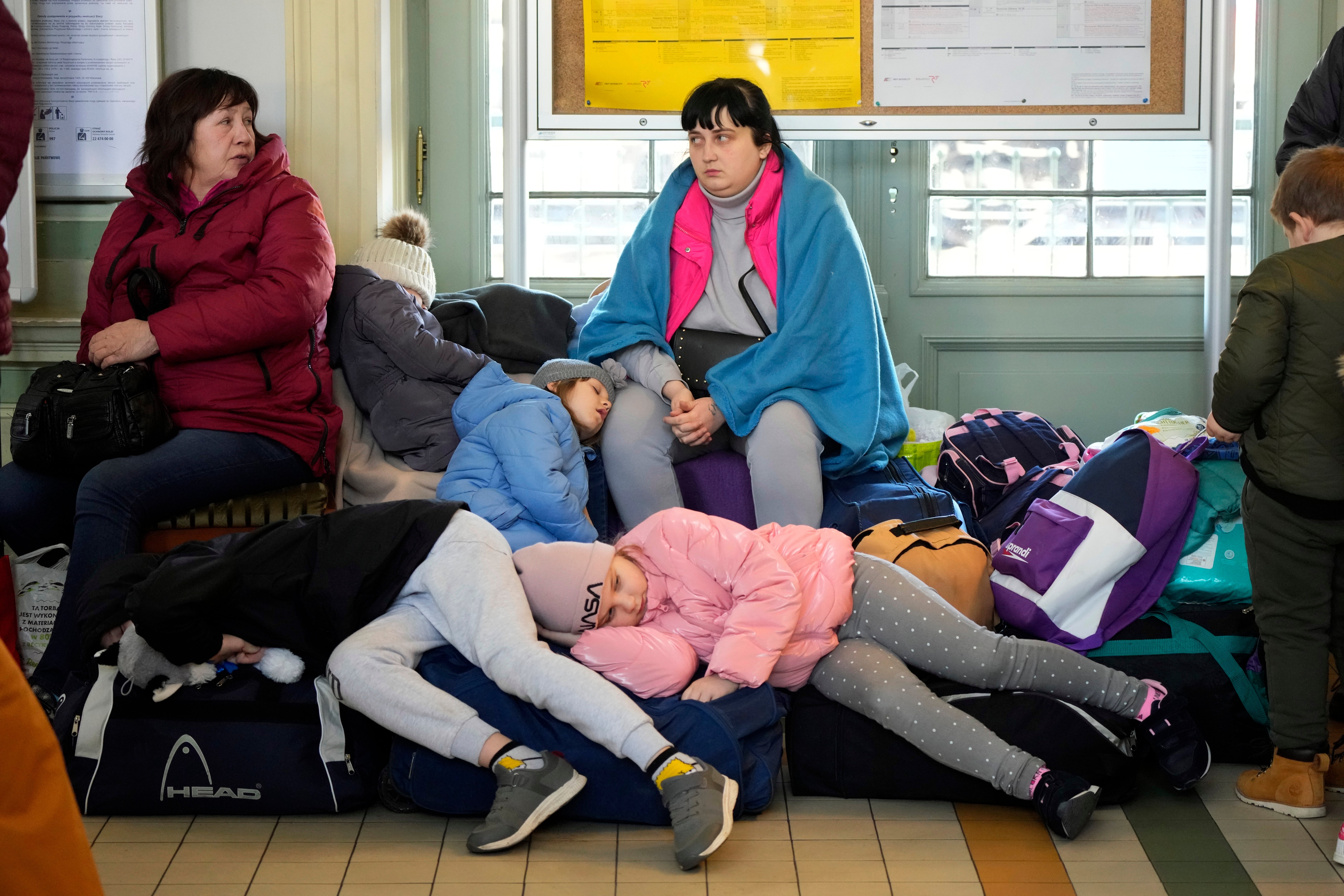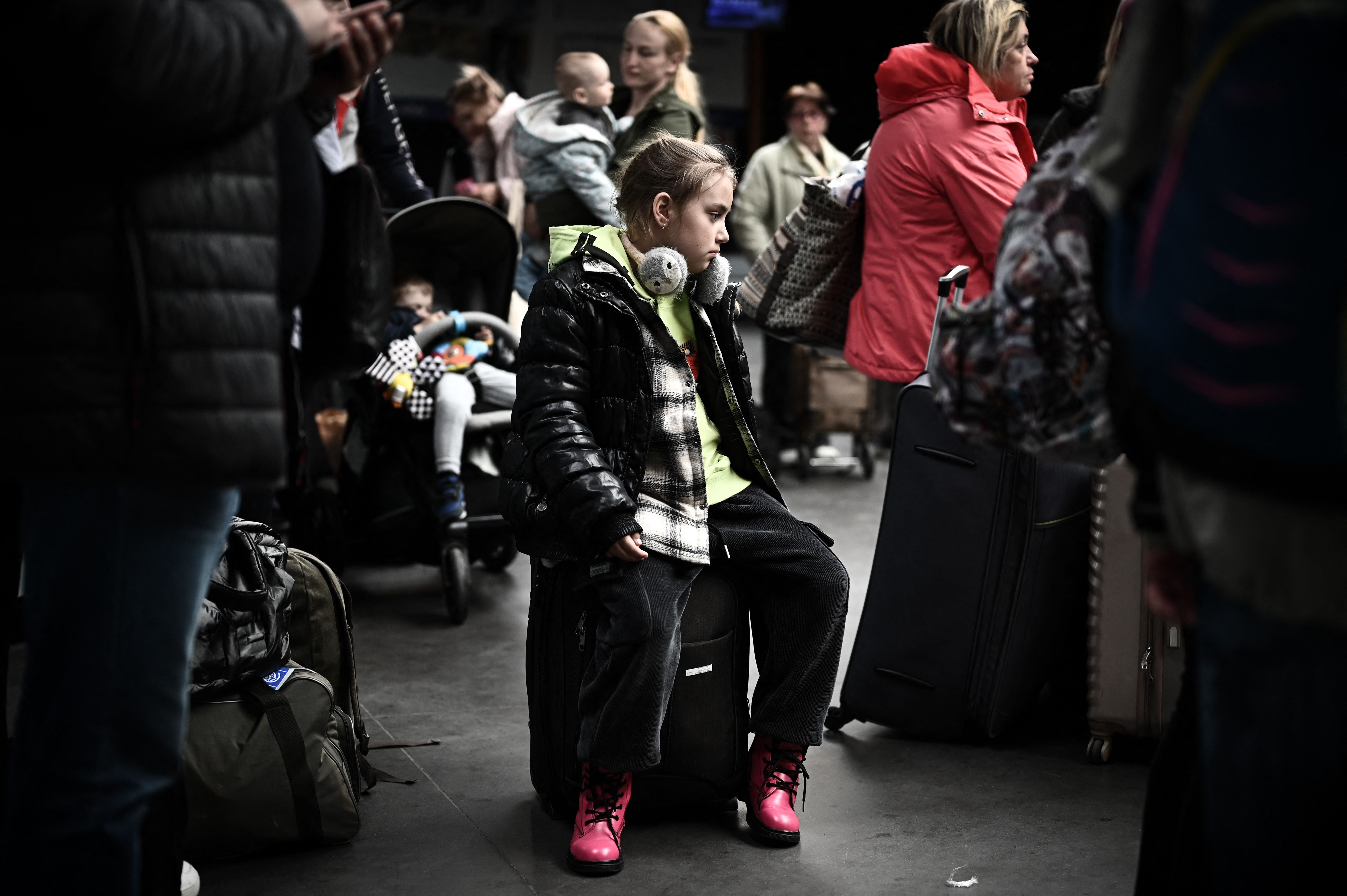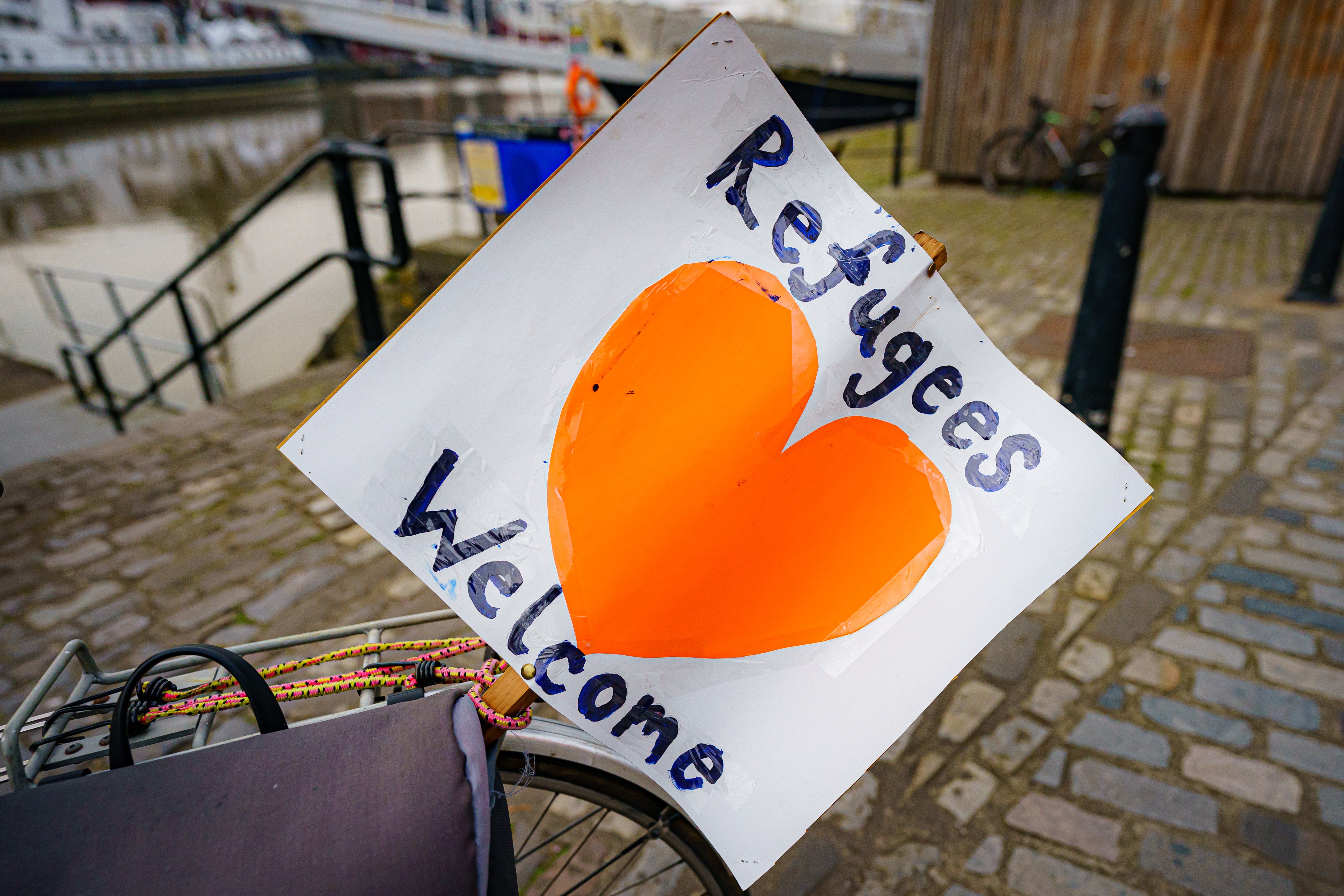Ukraine refugees stranded as Home Office acceptance letters ‘delayed or sent to spam folder’
UK hosts claims some Ukranian families approved for the Homes for Ukraine scheme haven’t actually been told - in some cases causing weeks of delays

Your support helps us to tell the story
From reproductive rights to climate change to Big Tech, The Independent is on the ground when the story is developing. Whether it's investigating the financials of Elon Musk's pro-Trump PAC or producing our latest documentary, 'The A Word', which shines a light on the American women fighting for reproductive rights, we know how important it is to parse out the facts from the messaging.
At such a critical moment in US history, we need reporters on the ground. Your donation allows us to keep sending journalists to speak to both sides of the story.
The Independent is trusted by Americans across the entire political spectrum. And unlike many other quality news outlets, we choose not to lock Americans out of our reporting and analysis with paywalls. We believe quality journalism should be available to everyone, paid for by those who can afford it.
Your support makes all the difference.Ukrainians accepted by the government's refugee scheme are being stranded outside the UK because of problems sending them confirmation letters, The Independent has learned.
The government's website tells refugees accepted by the Homes for Ukraine they will need a "permission to travel" to enter Britain, but some say theirs has never arrived.
People hosting families claim poor communication by the Home Office means people issued visas are not always being told they have been approved – sometimes for weeks. Hosts are now thought to be preparing legal action over the issue.
Officials are now urging families to check their email spam filters for fear the crucial emails are being lost in the digital post.
But The Independent has seen evidence some confirmation letters are being sent three weeks after the enclosed visa was actually granted.
One letter emailed to a family on 14 April notified its recipient of a permission to travel letter dated and issued on 24 March – suggesting a three week delay between the visa being granted and a notification issued.

Other hosts say they have faced similar problems. In one case, a family was issued four visas on 11 April, but only notified about one.
It was only after the intervention of a local MP that the family were told the three remaining visas would be issued "by 22 April". In fact, all four had already been issued at the same time.
The family's British host said: "I don't think we are an isolated case."
Another host experiencing similar problems told The Independent: "UK Visas and Immigration is issuing visas and other parts of the Home Office don't even know about it."
The discovery may partly explain the huge gap between the number of visas issued by the UK for Ukrainians and the number actually making it to Britain.
As of the beginning of April just one in 10 of the 12,500 people granted visas under the Homes for Ukraine scheme had actually arrived.

Home Secretary Priti Patel on Monday tried to explain the disparity, claiming in the Commons that people issued with UK visas were not coming because "families want to stay in region", despite having jumped through the bureaucratic hoops needed to come to the UK.
But host families say that people are being held up by bureaucracy and poor communication.
Hosts say that in some cases refugees have asked border force personnel at Calais to check whether a visa has been issued and found that it has – despite having received no confirmation.
A guide produced by the government for Ukrainians travelling to the UK says: "You will need to show your permission to travel to the UK letter letter to the Border Force officials." The letters themselves also say they will need to be presented to border staff.
Yet some hosts say that in practice border force officials can actually print the letter off themselves on arrival if a visa has in fact been issued.
A government spokesperson said: "Everyone issued a visa or a Permission to Travel letter (PTT) is informed as soon as possible.
"If an individual has not received notification of their PTT or visa there may be an issue with the email address they provided, or their spam/junk filters may have prevented them from receiving it.
"If an applicant is concerned that they should have received a notification but have not, we advise they contact the helpline.
“Thanks to the generosity of the public who have offered their homes to Ukrainians fleeing the war and through the Ukraine Family Scheme, more than 71,800 visas have been granted with 21,600 Ukrainians arriving safely in the UK.
“The Home Office is now processing thousands of visas a day – this shows the changes made to streamline the service are working and we’ll continue to build on this success so we can speed up the process even further.”
Join our commenting forum
Join thought-provoking conversations, follow other Independent readers and see their replies
Comments